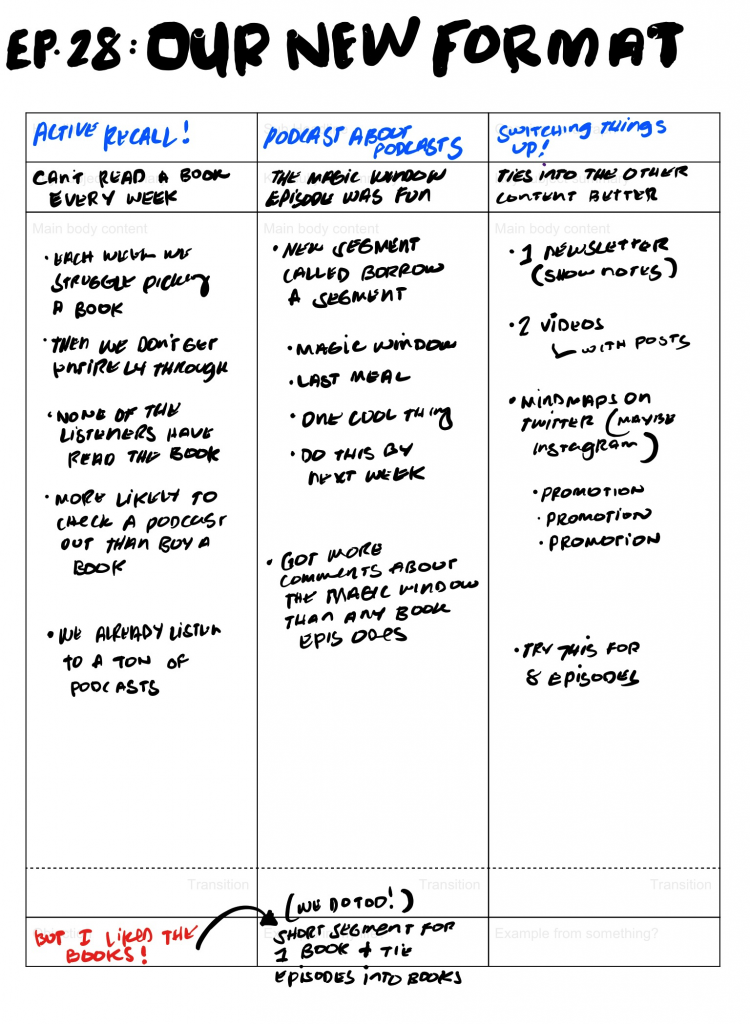Lesson 1: Take action. If you take action on something in a free PDF you’ll be one step ahead of someone who reads the content in a $3000 package without taking action.
(In other words: Pause the cassette.)
(In other words pt. II: Just Do It.)
I haven’t done a good job taking action. One tiny step will be sharing some lessons that appeared in multiple courses that I bought.
- Talk to experts. One of the courses starts with this early on. You need to reach out to an expert in your field and talk to them. They don’t have to be #1. (And probably shouldn’t be, because their time really is too valuable to spend with someone who doesn’t know what they don’t know.) So go for like #10. They can help you just as much. Talking to an expert accomplishes a few things. (1) You’ve done enough research to know who the expert is, (2) to talk to one expert you’ll likely need to reach out to multiple and experience rejection—and see that you can survive it no problem, (3) you’ve done research to make sure to ask them good questions to make sure you don’t waste that time.
- Meditate. This came up in multiple courses, usually when it got to some module about focus. Increased focus seems to be the meditation benefit that works best on performance-oriented people who are skeptical about meditation. I wouldn’t call myself performance-oriented (okay I don’t think anyone actually does so maybe I could’ve used Type-A or workaholic or something like that) but increased focus is one of the reasons I want to practice meditation more next year. That, lower anxiety, and force projecting my body.
- Share with others. All of the courses had some community aspect. I didn’t participate in most of them. Surprise: the course that I got the most out of was the one where I participated in the community. Next year I’ll participate more in communities. There’s a phrase called “Plus, Minus, Equal” or something like that. Anyway you should find someone who’s better than you (to teach you), someone who’s a few months behind you (to teach them), and people who are equal to you (to share the journey with). Communities help you find that entire range of people.
That’s pretty much a list of things that I should’ve stopped the cassette for and didn’t. I’ll make next year different.

